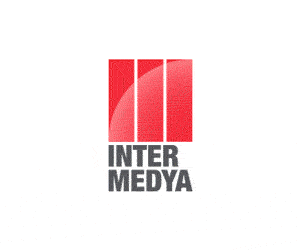
Korean public broadcaster KBS marked its 52nd anniversary this month with a declaration that 2025 would be the “first year of AI broadcasting”.
The AI initiative is being implemented across the business, from animated programme production to emergency broadcasting and rapid response, and involves a commitment to guidelines that include ethical standards.
KBS said in the anniversary announcement that its “comprehensive implementation” of the AI-driven broadcast production system would enhance “programme creativity and organisational efficiency while increasing the value of licence fees”.
A key highlight is the 5 May premiere of the generative AI animation programme, "Korean Ghost Stories – Gumiho", to celebrate Children’s Day. The production marks the revival of KBS’s classic horror folklore series, "Korean Ghost Stories", after a 19-year break.
KBS said the animation incorporated AI technology for character design, animation generation and voice synthesis, and promised a “distinctive visual experience while reducing production time and costs”.
KBS’ plans to use AI for emergency broadcasting build on the disaster detection system that kicked off in 2023 using more than 12,000 CCTV cameras nationwide to monitor events such as earthquakes and floods. The system will be expanded this year to include automatic detection of forest fires, “reinforcing KBS’ role as the primary broadcaster for emergency coverage,” KBS said.
Trial broadcasts featuring AI anchors have already begun. On 3 March, an AI system trained on the voice of a KBS announcer delivered the news on a radio programme aimed at promoting Korean ethnic unity.
KBS’s marketing plan for the AI anchors includes a public “AI Anchor Experience Zone” at its Seoul HQ.
KBS also said it was exploring the provision of free universal services, including an AI Standard Korean Pronunciation Service and an AI Service for the Visually Impaired.
Korean public broadcaster KBS marked its 52nd anniversary this month with a declaration that 2025 would be the “first year of AI broadcasting”.
The AI initiative is being implemented across the business, from animated programme production to emergency broadcasting and rapid response, and involves a commitment to guidelines that include ethical standards.
KBS said in the anniversary announcement that its “comprehensive implementation” of the AI-driven broadcast production system would enhance “programme creativity and organisational efficiency while increasing the value of licence fees”.
A key highlight is the 5 May premiere of the generative AI animation programme, "Korean Ghost Stories – Gumiho", to celebrate Children’s Day. The production marks the revival of KBS’s classic horror folklore series, "Korean Ghost Stories", after a 19-year break.
KBS said the animation incorporated AI technology for character design, animation generation and voice synthesis, and promised a “distinctive visual experience while reducing production time and costs”.
KBS’ plans to use AI for emergency broadcasting build on the disaster detection system that kicked off in 2023 using more than 12,000 CCTV cameras nationwide to monitor events such as earthquakes and floods. The system will be expanded this year to include automatic detection of forest fires, “reinforcing KBS’ role as the primary broadcaster for emergency coverage,” KBS said.
Trial broadcasts featuring AI anchors have already begun. On 3 March, an AI system trained on the voice of a KBS announcer delivered the news on a radio programme aimed at promoting Korean ethnic unity.
KBS’s marketing plan for the AI anchors includes a public “AI Anchor Experience Zone” at its Seoul HQ.
KBS also said it was exploring the provision of free universal services, including an AI Standard Korean Pronunciation Service and an AI Service for the Visually Impaired.



















